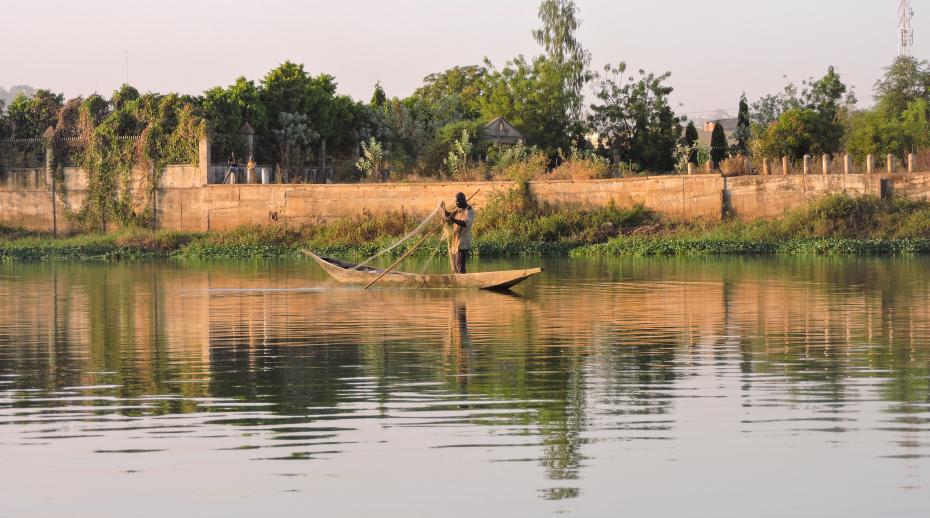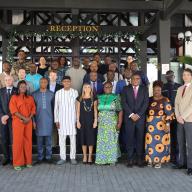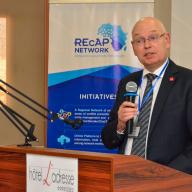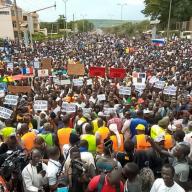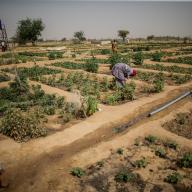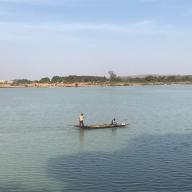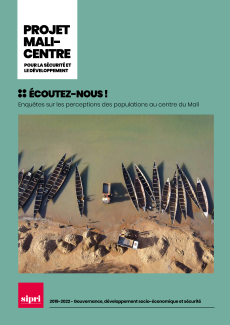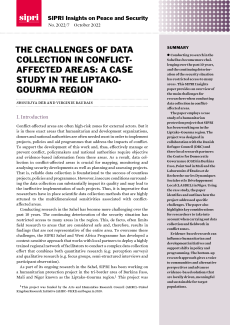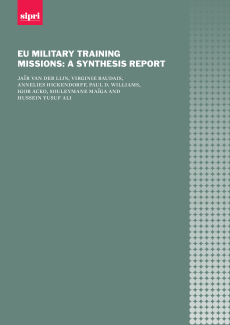Security, governance and conflict prevention
Many states in West Africa face severe governance problems linked to state weakness, extreme poverty, economic fragility and insecurity—issues compounded by climate-security risks and the spread of armed groups. The 2012 northern Mali crisis has become, over the years, a regional and multidimensional crisis, spreading to central Mali and spilling over the borders to Burkina Faso and Niger.
Central Mali for Security and Development
Since 2018, the European Union-funded project ‘Central Mali for Security and Development’ has monitored the Central Mali population’s perceptions on security, governance and socio-economic development.
A quantitative panel survey is conducted every three months across 1800 households in the 15 cercles in Mali’s central regions. SIPRI partners with Point Sud on this project. Research findings are triangulated by qualitative research and focus groups discussions to provide operative analysis at all levels, from the local level to national and international stakeholders. Please find the links to the recent field survey quarterly reports below.
- Governance, Security and Development in the Regions of Bandiagara, Douentza, Mopti, San and Ségou (12–26 June 2021)– Available also in French (PDF).
- Survey of the perception of security among the population in the Mopti, San and Ségou regions (4–19 Oct. 2021) – Available also in French (PDF).
- Governance, Development and Security in the Regions of Bandiagara, Douentza, Mopti, San and Ségou (25 Oct.–9 Nov. 2021) – Available also in French (PDF).
- Governance, Development and Security in the Regions of Bandiagara, Douentza, Mopti, San and Ségou (7–21 Feb. 2022) – Available also in French (PDF).
- Governance, Security and Development in the Regions of Bandiagara, Douentza, Mopti, San and Ségou (13–29 Sep. 2022) – Available also in French (PDF).
Just Future
The Just Future Alliance (2021–25, funded by the Dutch Ministry of Foreign Affairs) is a global strategic alliance of civil society organizations, non-governmental organizations and research organizations. It aims to improve the accessibility, responsiveness and accountability of security and justice institutions for all citizens in Mali and Niger through mobilizing civil society for collective action and advocacy. As a consortium partner, SIPRI conducts biannual quantitative surveys with its research partners Point Sud in Mali and LASDEL in Niger to better understand the perceptions, needs and expectations of local communities regarding security at the local, regional and national levels. This includes assessment of local (in)security, everyday relations with the national security forces and possible roles for civil society actors on security issues.
Published reports and policy papers on ‘Local Perceptions of (In)security in the Sahel (Mali, Niger)’ are available in French here.
Just Future Visual Summaries
Mali Q2 to Q7 (English)
- Perceptions of security in the regions of Mopti, Gao and Timbuktu in Mali (29 September to 8 October 2022— Q2 field survey)
- Perceptions of security in the regions of Mopti, Gao and Timbuktu in Mali (11 to 24 March 2023—Q3 field survey)
- Perceptions of security in the regions of Mopti, Gao and Timbuktu in Mali (12-31 October 2023—Q4 field survey)
- Perceptions of security in the regions of Bandiagara, Gao, Mopti and Timbuktu in Mali (15 to 24 April 2024—Q5 field survey)
- Perceptions of security in the regions of Bandiagara, Gao, Mopti and Timbuktu in Mali (20-30 October 2024—Q6 field survey)
- Perceptions of security in the regions of Bandiagara, Gao, Mopti and Timbuktu in Mali (07 to 18 April 2025—Q7 field survey)
Mali Q2 to Q7 (French)
- Perceptions relatives à la sécurité dans les régions de Mopti, Gao et Tombouctou au Mali (29 septembre au 08 octobre 2022—l'enquête de terrain Q2)
- Perceptions relatives à la sécurité dans les régions de Mopti, Gao et Tombouctou au Mali (11 au 24 mars 2023—l'enquête de terrain Q3)
- Perceptions relatives à la sécurité dans les régions de Mopti, Gao et Tombouctou au Mali (12 au 31 octobre 2023—l'enquête de terrain Q4)
- Perceptions relatives à la sécurité dans les régions de Bandiagara, Gao, Mopti et Tombouctou au Mali (15 au 24 avril 2024—l'enquête de terrain Q5)
- Perceptions relatives à la sécurité dans les régions de Bandiagara, Gao, Mopti et Tombouctou au Mali (20 au 30 octobre 2024—l'enquête de terrain Q6)
- Perceptions relatives à la sécurité dans les régions de Bandiagara, Gao, Mopti et Tombouctou au Mali (7 au 18 avril 2025—l'enquête de terrain Q7)
Niger Q2 to Q5 (English)
- Perceptions of security in the Maradi and Tillabéri regions in Niger (9 to 18 November 2022—Q2 field survey)
- Perceptions of security in the regions of Maradi, Tahoua and Tillabéri in Niger (5 to 14 March 2023—Q3 field survey)
- Perceptions of security in the Maradi, Tahoua and Tillabéri regions of Niger (23 October to 5 November 2023—Q4 field survey)
- Perceptions of security in the regions of Maradi, Tahoua and Tillabéri in Niger (09 to 18 May 2024—Q5 field survey)
Niger Q2 to Q5 (French)
- Perceptions relatives à la sécurité dans les régions de Maradi et Tillabéri au Niger (09 au 18 novembre 2022—l'enquete de terrain Q2)
- Perceptions relatives à la sécurité dans les régions de Maradi et Tillabéri au Niger (5 au 14 mars 2023—l'enquete de terrain Q3)
- Perceptions relatives à la sécurité dans les régions de Maradi et Tillabéri au Niger (23 octobre au 05 novembre 2023—l'enquete de terrain Q4)
- Perceptions relatives à la sécurité dans les régions de Maradi et Tillabéri au Niger (09 au 18 mai 2024—l'enquete de terrain Q5)
Research & Action for Peace Network
SIPRI is implementing a 36-month project in partnership with the West Africa Network for Peacebuilding (WANEP) and the Danish Refugee Council (DRC). This project aims to strengthen the role of civil society in effective peacebuilding and the prevention of conflicts and violent extremism in West Africa and the Lake Chad Basin by establishing an interactive platform for regional cooperation. The platform will facilitate dialogue among existing expert networks, researchers, think tanks, civil society, implementing partners, regional organizations and governments. The project is implemented in the 18 countries of West Africa and the Lake Chad Basin, and is funded by the European Union.
State at work in insecure areas
In May and June 2021, SIPRI conducted research on populations’ perceptions of the state in the regions of Menaka, Douentza, and Gao in Mali, and the region of Tillabéri in Niger. The study aims to understand what populations expect from the state in terms of local public services. It also assesses the state’s ability to meet people’s expectations and people’s level of satisfaction. This research was conducted by SIPRI, the Timbuktu Institute and LASDEL. The second phase of research was conducted in April and May 2022 and focused on state employees in different services (education, livestock and water) in the same regions. In this deteriorating security situation, civil servants adapt their work to minimize risks and to continue serving the population. This research was carried out in collaboration with the Institute of Human Sciences (ISH) and LASDEL.
